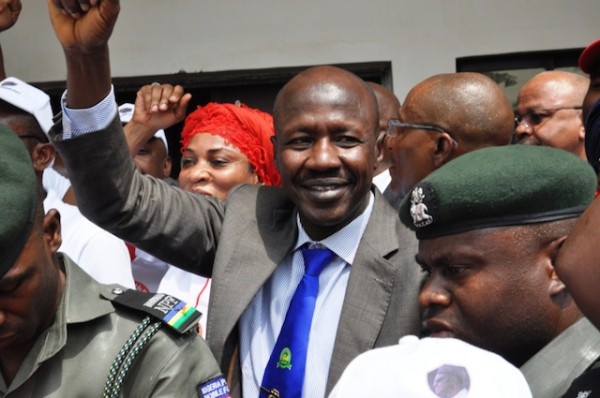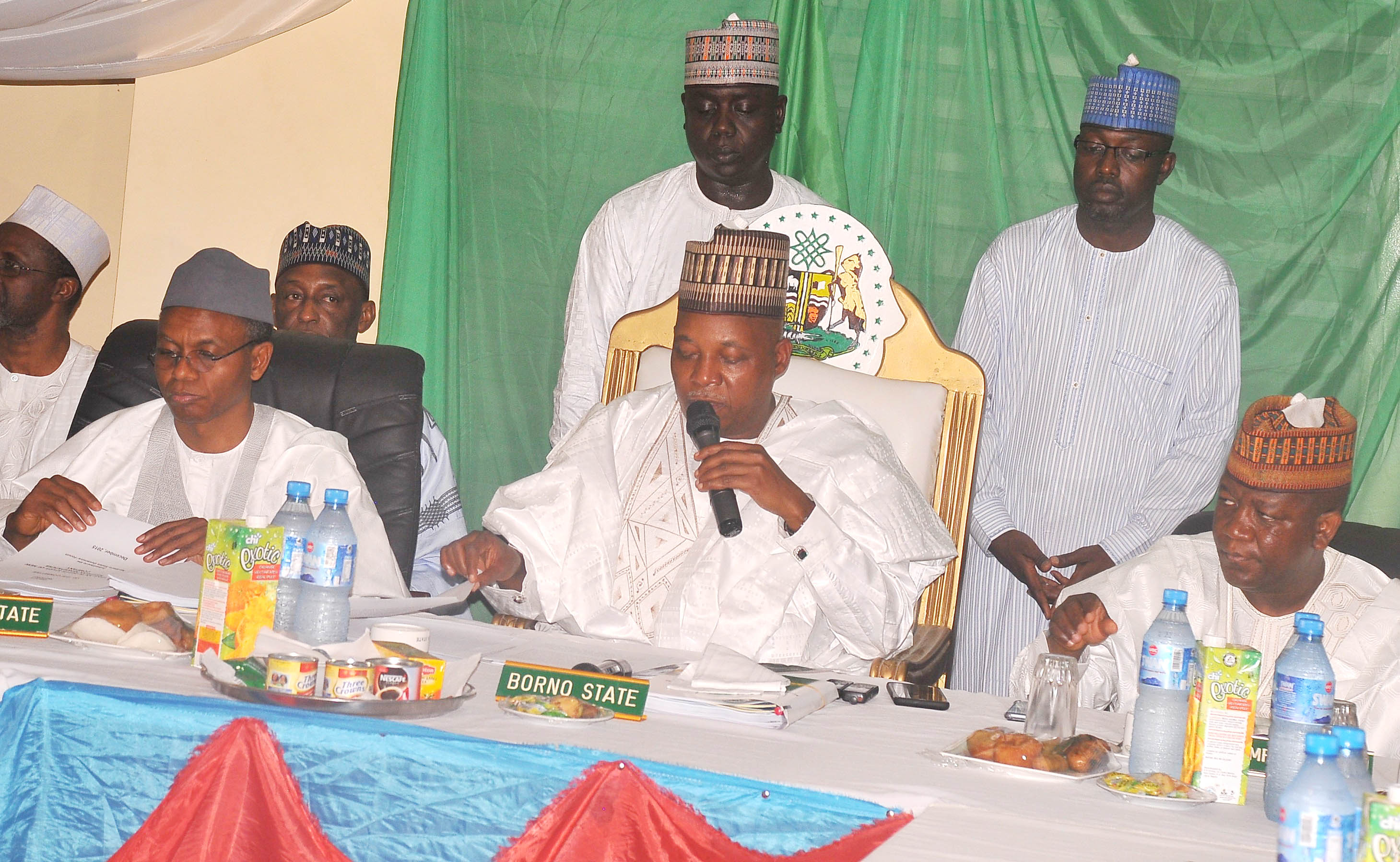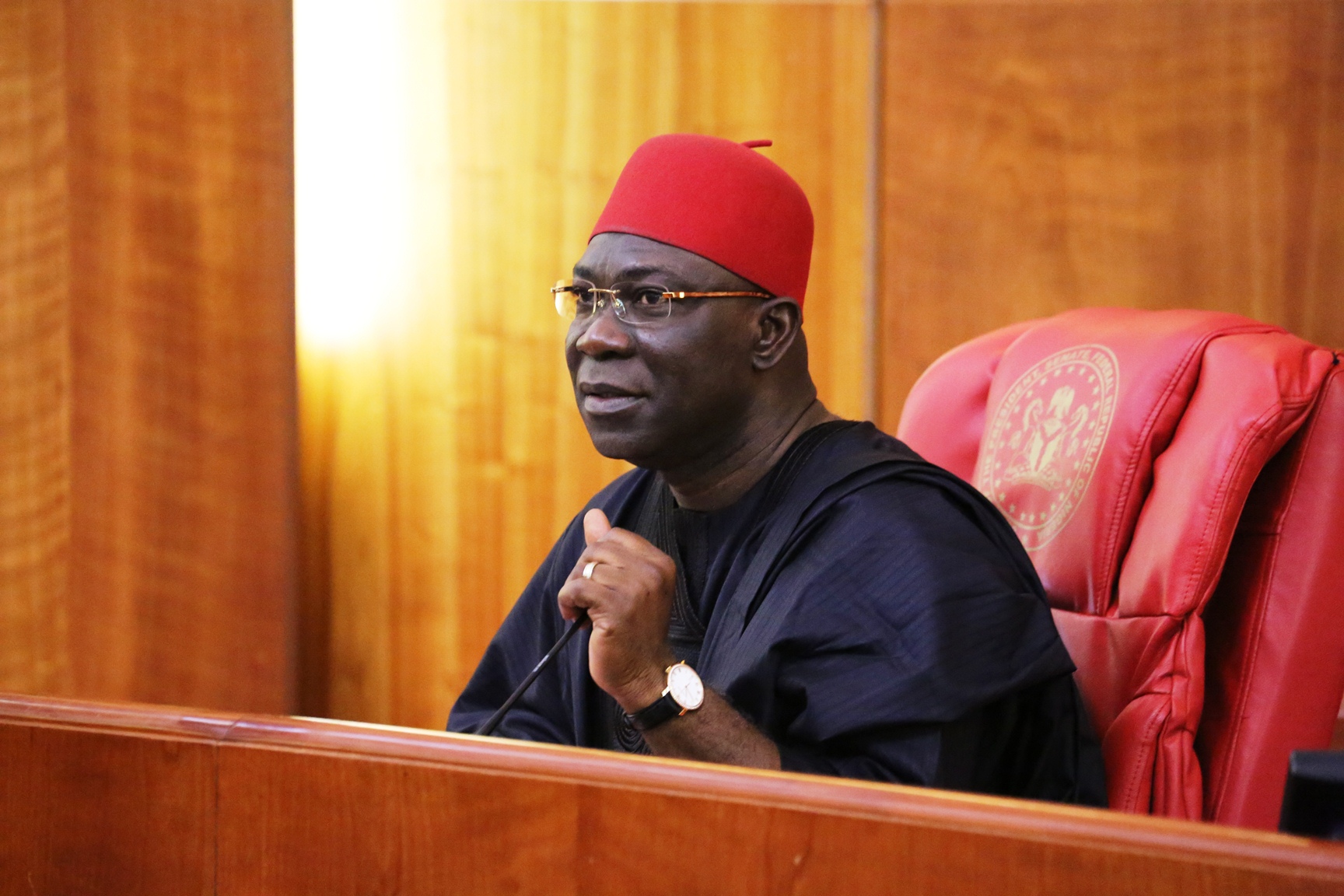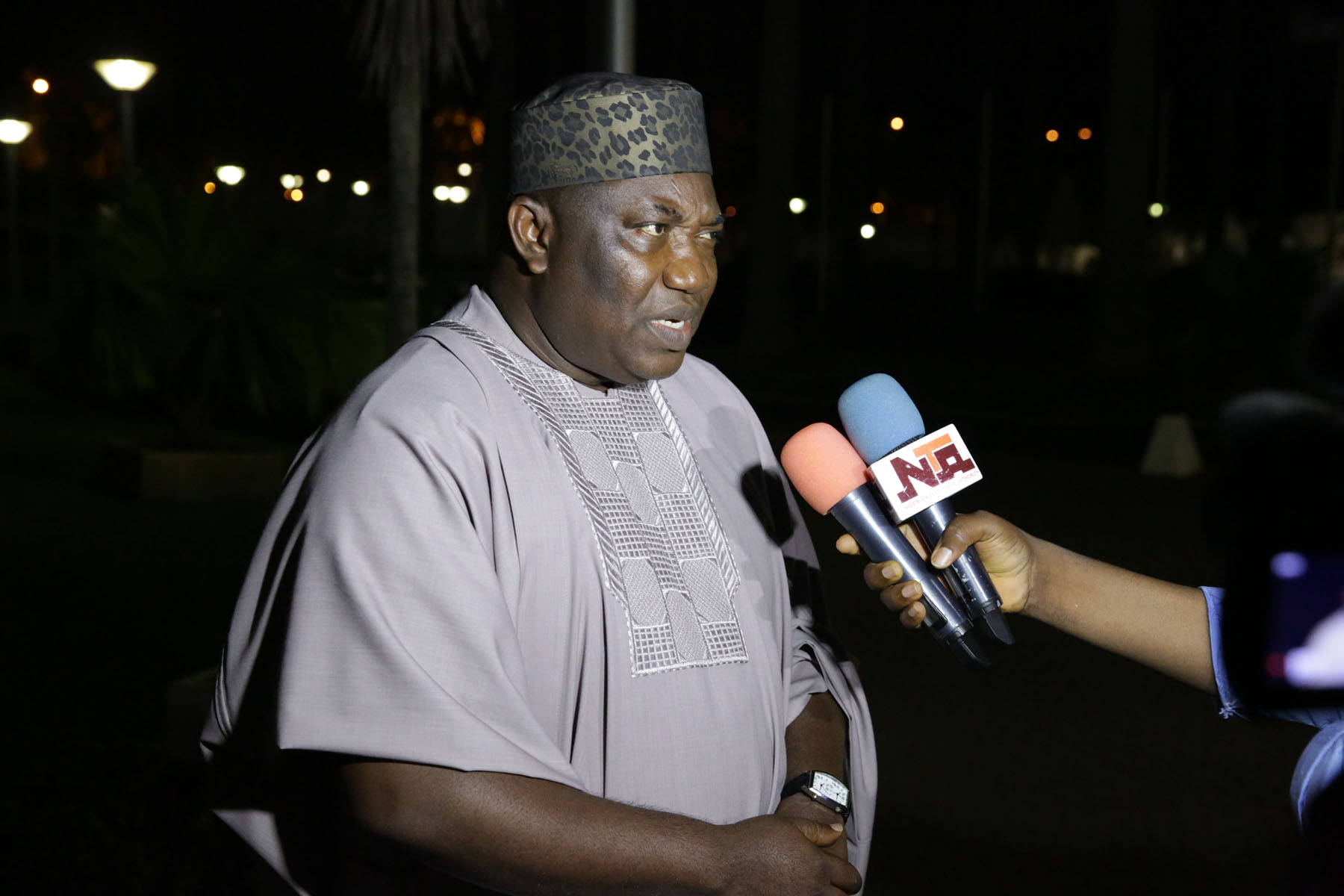It is very likely that corruption has been the reason for our past jobless growth. The vast component of our GDP, which is made up of black money, cannot create much jobs. My hypothesis is that corruption constitutes a vast portion of our so called $500 billion economy. In this article, I will give ‘empirical evidences’ to show that my hypothesis is correct.
Before we get into the conversation, let me make two quick points. One, the aim of this article is not disparage nor de-market Nigeria. Rather, it is to alert Nigerians that, if care is not taken, we might still be a ‘poor country’ 50 years from today. Two, I will not dwell on allegations that might be difficult to prove at this point. For example, the recent revelation, by the EFCC, that the arms scandal is in the neighborhood of $15 billion sounds sensational because this amount is way more than half of FG’s 2015 budget. In any case, I will be happy if Buhari gets back such amount because he won’t need loans, from abroad, anymore.
In Nigeria, the average cost of constructing a kilometer of major highways are about the highest in the world – higher than World Bank estimates. If you are one of those who argue that Nigerian highways are so complex and require more funds, think about the Lagos-Ibadan highway and the Lagos –Abidjan highway. The 127 km Lagos-Ibadan road contract was fixed at N167 billion in 2013 ( about $1 billion then) by the FG, while the 1028 km Lagos- Abidjan road was estimated to cost between N640 – 960 billion (approximately $4 -6 billion then) by ECOWAS. Note that while the Lagos-Ibadan road was estimated to be about N1.3 billion per km, the Lagos-Abidjan highway, which transverses 5 countries and is more complex, was estimated at about N622 – 933 million per km. If you aggregate all the corruption in road construction in Nigeria, you would obtain a value that would amaze you.
Apart from corruption in procurement activities in Nigeria, there is massive corruption in political processes in Nigeria. Remember that during the 2015 election, Transparency International released a report saying that Nigerian political parties (PDP, APC and others) were the most corrupt in the world. Today, some of us have snippets of information on how PDP funded its campaigns. We have just heard that a government agency, Nigeria Intelligence Agency (NIA), was used in money laundry. Some former top government functionaries have even started returning money.
Advertisement
We have an idea of PDP’s campaign spending, but we don’t have any of the APC’s. If you add up these spending, you would obtain a different economy. Interestingly, during elections another lucrative economy is created for top civil servants. Some weeks ago, the EFCC found over N675m in the bank accounts of different INEC officials involved in the Rivers, Akwa Ibom and Delta State elections. The Punch Newspaper reported that the EFCC suspects the money was received and shared by the officials during the last governorship election. In fact, in Nigeria if you are appointed for some national assignments, it is almost like you have won a lottery. If you accumulate the GDP for this illegal economy you will be amazed.
The other day, the ICPC boss, Ekpo Nta, told us that some junior civil servants actually make more money than their bosses. If you stretch the Nta’s speech, you might be right to assume that all the billions you have been hearing in recent probes by the EFCC are chicken feed compared to what junior civil servants make. He said we should not be carried away that they looked haggard. There are instances of junior civil servants building estates.
In Nigeria if you are given a big public office, your family is made. Examples of this abound in Nigeria. For this reason, I congratulate and respect Adio Waziri for publicly declaring his assets after he was appointed into NEITI, as the organization’s boss. If you look at Waziri’s assets, you will see that it is not really easy to be rich in Nigeria. Some young men working in multinational oil companies are way richer than Adio. The point I am trying to make here is that some Nigerian workers live above their means, probably with ill-gotten money.
Advertisement
In fact, everywhere you look there is massive corruption. Some people say journalist are also very corrupt, probably because they are not well paid. The other day, Sunday Oliseh accused some sports journalists of asking him for money in order to publish good stories about him. I am not sure how that story ended. Stories abound on how journalists collect brown envelopes.
Have you wondered why Nigerian football is dead? I feel sorry for football fans in Nigeria. Last week, the former vice president of the NFA, Gabriel Chukwuma, said that Nigerian coaches are more of agents rather than coaches. He said as a player, if you don’t pay or get sponsored by someone, nobody will recognize you. Our so called coaches are corrupt.
This brings to mind the most pervasive form of corruption, the one that has the most impact on our GDP. When you appoint someone who is incompetent for a job you are contributing in crumbling the economy. In Nigeria, people get jobs not because of their potentials, but because of corruption.
Don’t even look at the judiciary. The other day the NJC ‘punished’ some judges for falsifying their ages. Some have also been recently retired for other offences. Though the NJC simply retires judges, where they should have been prosecuted, we still thank God the NJC has woken up. There are so many reports on how senior lawyers paid in money into judges’ account. Since l like being objective, I will not talk much of these because some of them are still allegations. However, judgements in some election appeal cases makes one scratch his head.
Advertisement
One would expect some consolation from the ivory towers, but you won’t get any there. In fact, complaints about corruption, by lecturers and governing councils, were so rampant that the education minister was forced to set up a panel to look into the management of 10 universities and polytechnics in the country. This was about the first thing the minister, Adamu Adamu, did on assumption of duty.
I remember in 2006, a friend jokingly told me something that even looked like an insult. But, because he was a friend we laughed over it. It was my first time overseas and he told me not be afraid that the French police won’t collect 20 euros from me as Nigerian police do. We had this conversation in Paris, and my French friend had worked for an energy company in Nigeria. If you aggregate all the bribes at the borders and checkpoints, you would be amazed at the value you would get, it is probably bigger than the arms scandal in Nigeria. Besides, its effect on productivity cannot be quantified.
Malfeasance in the private sector is also very disturbing. There have been huge corruption cases in the oil and gas industry and construction industry in Nigeria, in 90s and early 2000s. I am not sure some players in the private sector are now ‘born again’. The recent fuel subsidy scandal shows they have not repented.
Ahem, let’s talk a bit about our state governments, before we round up. If you look at what’s happening in the states, you will weep for Nigeria. The way some state governments managed the recent bailout funds is very disturbing. Corruption is everywhere in the states and local governments.
Advertisement
On a final note, research has shown that during economic recessions, when everybody is struggling, the super-rich earns more and spends more. In hard times, they spend so much on luxury goods, the kind of £1.4 million wrist watch that the EFCC just sieved from an oil baron’s wife. This kind of behaviour distorts economic fundamentals in Nigeria, even in other countries. How some rich people, not all of them, earn these monies they spend is all I have been trying to explain in this piece. Remember these activities constitute a vast portion of the GDP that never reflects on the life of the average Nigerian.
Advertisement
Add a comment







